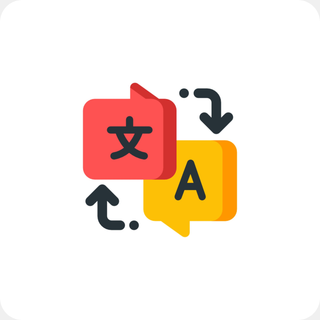Kunaal Naik
(Founder of Data Science Masterminds | Non-Linear Learning Advocate | Data Science Career, Salary Hike & LinkedIn Personal Branding Coach | Speaker) | LinkedIn Profile
“Learning has no end date. This is why our learning material never comes with a start or end date”. Isn’t it a powerful thought?
A few minutes into the interview, Mr. Kunaal Naik states this powerful quote and it created a lasting impact. We tend to equate learning to studying in school or college, but it is more than that. It helps you equip yourself with the right skill sets for each role that you wish to pursue - be it your main career or your side hustle. He personifies what he says and strikes a 50-50 balance between his work and passion projects.
Background and interests:
The thirst to learn is a common factor among successful people. They do not view this process as a finite one and always look for chances to grasp more. It holds true for our interviewee, as well, who works as a Senior Data Scientist at Dell, but describes with pride that his passion lies in training and coaching, especially career-related coaching for mid-career professionals to move into product-based roles. He aspires to build a community of continuous learners and problem solvers, who are world-class decision-makers and leaders.
He did a part of his schooling at New Era High School, Panchgani, a boarding school and had to move to Hyderabad for his ninth grade owing to financial challenges. The transition from boarding to a building school was a rough one but turned out to be a blessing in disguise as it enabled him to focus more on his studies.
He took up Bachelor's in Computer Science Engineering at college and after completing the degree, he realised that his base in Mathematics was shaky, which in turn impacted his coding skills and he was left feeling less assured of his abilities.
The motivation behind choosing Data Science as a career:
This spurred him to take up a data science course in 2010, as the field was booming and was relatively less complex compared to conventional programming, as it involved visualization and coding. There was only one institute in Bangalore that offered the same. He registered for the course and took up his first job there post the course completion for about a year. He worked as an analyst and a part-time trainer during his stint.
The aha moment behind becoming a data scientist:
His aha moment came through when he had to decide between doing an MBA and the data science course. Owing to the expenses involved with doing an MBA, it made more sense to take up the course over a degree since it was less expensive to begin with and he had a base in computer science, as well.
This did not deter him from equipping himself with the knowledge of domains in MBA like marketing and concepts like entrepreneurship. He extensively pursued studying articles and books and eventually became a coach without a degree.
He mentions that he wanted to prove to himself that one does not need a degree to make progress. However, he adds a word of caution and says self-discipline is the key to making a breakthrough.
He comments that side projects have been a constant all his life and he teaches AI, ML, data science, personal branding, B2B inorganic/organic marketing and career-related skills to corporate workers. He also says that he never hesitated to take up any opportunity to develop himself and that he has been able to grow the side hustle exponentially in the last 10 years.
Challenges in the shift to data science:
When probed about the main challenges while transitioning into Data Science, he indicates that communication, negotiation and stakeholder management are major ones. Kunaal affirms that people often consider developing technical skills to be a major challenge, but the real deal is people management. He says that these non-technical skills are underrated and make a huge difference in the way we go about our work.
He shares an instance where early on in his career, he sent an email of his analysis on some coupons to the client and got a response along the lines of how his analysis did not add much value. On introspection, he realized that he had shared the data with the client and not the analysis or solid inferences that would aid decision-making. He focussed on honing these skills through reading books and consulting mentors. This was where his journey towards answering questions started.
Crucial skills for aspiring data scientists:
He reveals that it is essential to get your hands dirty with the data to get a better grasp on problem-solving. It is also paramount to have a continuous learner mindset to tackle new challenges. He continues with an interesting point - LLMs like ChatGPT are aplenty, but one needs to know how to ask the right questions to get the perfect answers.
With the right prompts, anyone can build apps or work on major coding. He emphasizes that soft skills such as problem-solving mindset, critical thinking, data management and storytelling, handling ambiguity and a general understanding of the cloud are critical for the job and to keep stakeholders happy.
Role of Mathematics and Statistics in Data Science:
With respect to the role of mathematics and statistics in data science, he has a slightly controversial take on it. He adds that unless one works in core R&D, a strong base in maths and statistics is not required. We can always equip ourselves with project-specific concepts and gradually work on strengthening the fundamentals.
For instance, he mentions how he was working on traditional machine learning models in the initial phase of his career and has now moved to generative AI applications. He says that a holistic view needs to be adopted and remarks that the best approach is a customer-oriented one.
Recommended courses and books for skill development:
He recommends using YouTube and LinkedIn Learning to keep abreast of the latest ideas and concepts and advises learning automation to save time. Apart from that, he suggests Udemy as a good platform to master technical skills as it is best to learn from people who have recently figured out the solution to problems. He also suggests books like Gartners, HBR and following relevant influencers on Linkedin as a means of gaining more knowledge.
Personal projects: essential for showcasing skills and success in interviews
According to him, personal projects play a vital role in cracking job interviews. He explains that passion projects teach us 100 different ways to work on a task, irrespective of the result. The experience of problem-solving stands to be infinitely greater than being able to answer a theory-based question as practical knowledge is valuable.
He adds that guesstimating is an important skill to possess. Comprehending the customer’s problems is a major plus, too. With respect to interviews, he says that confidence and the manner of introduction are crucial ingredients in cracking them. For instance, framing your introduction statement as a mission to create strong decision-makers and leaders will stand out as a powerful introduction. Another tip is to make the interview laugh within 2-3 minutes of the interview as this will help strike a rapport.
Best industries for data science in an interdisciplinary context:
Since data science is omnipresent, he notes that the common fields of work are currently in consumer tech (eg: Swiggy), manufacturing, pharma, captive companies (eg: Dell, Fidelity), EV and sustainable fields and marketing.
Staying updated in Data Science and the importance of soft skills:
When prodded on how to keep oneself updated on the latest happenings in data science, he says that technical skills can always be learnt, the key thing to master is identifying customer pain points. He highlights that problem-solving methods may change over time but problems won’t. Hence, it is imperative to understand problem statements, break them into small pieces and deploy technology.
Common misconceptions about becoming a data scientist:
A common misconception about data scientists is that they can skip learning the basics and jump to the advanced levels. For instance, he says often people learn Python without mastering Excel/SQL, thereby creating shaky ground. Also, the importance of understanding the context in this field is understated.
The second misconception is that they can stop learning. As a data scientist, learning never stops. He says that he spends about 300-400 hours on learning and upskilling every year. He abides by the mantra: self-discipline = learning. The third is that one can get high-paying jobs just by getting into a good company. The quality and quantity of problems solved are directly proportional to the salary.
The final piece of advice for aspiring data scientists:
His final piece of advice to aspiring data scientists is to embrace continuous learning and kindle the curiosity to solve complex problems, as these traits will significantly boost their chances of landing top data science positions. A major takeaway from the conversation with him is for everyone to optimally utilize the power of AI and automation to work smart and less, yet earn more.
After equipping himself with data science skills, he has gone on to build a data science community, where he teaches various aspects of data science and also acts as a career coach. Data science skills have helped him in automating work and straddling his profession and passion with peace. A big takeaway for everyone is that smart planning and the ability to persevere are vital in achieving success in our goals.
We wish him a lifetime of wonderful learning and teaching!




























